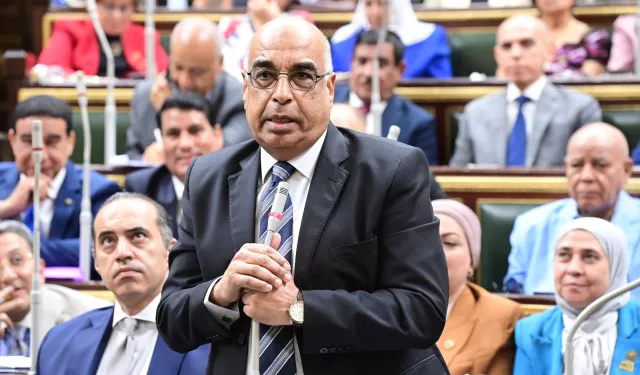Egypt’s Justice Minister Adnan Fangary publicly reversed his opposition Thursday to President Abdel Fattah El-Sisi’s objections to the controversial Criminal Procedure bill—just one day after resisting them in a closed committee session.
During a tense plenary session, Speaker Hanafy El Gebaly pressed Fangary on whether he was withdrawing his previous stance. The minister replied, “Yes,” prompting Gebaly to declare to the chamber, “the minister is withdrawing everything he said in the committee,” formally sealing the government’s reversal into the parliamentary record.
The draft law, passed by parliament in April, and spanning 552 articles, was returned by the president in September for further study. His letter of objection highlighted eight specific articles, several of which civil society groups warn could entrench, rather than reform, Egypt’s deeply flawed criminal justice system.
At the center of the dispute is Article 48, which grants security forces the power to enter homes in cases of vague “danger.” Critics argue the undefined language risks eroding constitutional protections on privacy.
While the government had cited Article 58 of the constitution, allowing such intrusions in cases of “danger or distress”, it failed to offer a clear legal standard. Fangary had initially proposed softening the language by adding “or similar cases” but reversed that stance under scrutiny.
Another contested clause is Article 114, which provides only three alternatives to pretrial detention. Rights organizations and the presidency have both pushed for a broader range of noncustodial options to curb excessive remand use.
Fangary had previously opposed the change, citing the financial and technical challenges of electronic monitoring, but has since moderated his position.
Controversy also surrounds Article 411, which mandates assigning a lawyer during appeal hearings if a defendant or their representative is absent, without allowing a delay. Sisi warned this could undermine the right to defense and presumption of innocence.
Other flagged provisions include Article 105, which restricts prosecutorial discretion in urgent cases; Article 112, which permits indefinite detention without a reasoned judicial order; Article 123, which limits how often detainees may be presented to a prosecutor during remand; and Article 231, which mandates digital summons procedures without fallback options in case of system failure.
Despite mounting criticism, Speaker Gebaly defended the draft as fundamentally sound. “Only eight out of 552 articles were objected to,” he said. “That proves the law is robust and coherent.” He insisted the text reflects broad institutional cooperation, not a rushed or politicized effort.
Rights groups remained unconvinced. The Egyptian Initiative for Personal Rights warned that cosmetic changes to eight articles fail to address deeper structural flaws. The Egyptian Front for Human Rights echoed the concern, calling the scope of the amendment “severely inadequate.”
International scrutiny has also grown. UN agencies have criticized the bill’s provisions on remote trials, limited access to case files, and the normalization of pretrial detention.
Parliament is expected to vote on the revised articles in the coming days. Meanwhile, the National Election Authority will convene Saturday to finalize preparations for upcoming parliamentary elections. Rights advocates warn that without deeper reform, Egypt’s justice system remains at risk of political exploitation, particularly in the lead-up to a high-stakes national vote.
